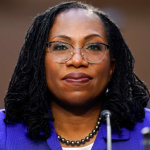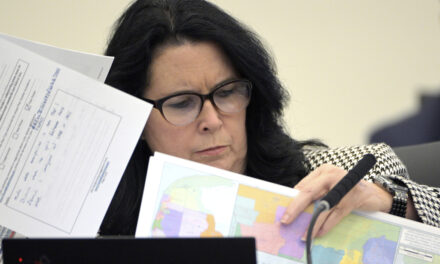By Aria Brent,
AFRO Staff Writer
On the evening of May 23 Johns Hopkins University’s (JHU) School of Education (SOE) held their 114th commencement ceremony, celebrating the latest group of alumni to join the network of over 24,000 educators.
AFRO Publisher and CEO Dr. Frances “Toni” Draper delivered the commencement speech for the SOE graduates nearly 50 years to the day that she earned her own master’s degree in the science of education.
Sharing the excitement of the evening with the graduates, Draper discussed her experience as an educator during the 1970’s and compared it to the culture of modern day classrooms. She noted that too many students are unfamiliar with historical or modern day Black figures and attributed this to the ongoing debate about the place of Black history in schools.
“Black history is an essential component of a comprehensive and accurate understanding of American history, and is crucial for addressing issues of racial inequality and injustice in the United States,” said Draper. “More importantly, it gives people a sense of who they are historically, why their lives matter, and who they can aspire to be.”
Furthering her point, Draper urged the graduates who are both a part of and responsible for inspiring and educating the next generation of leaders to be mindful of how they engage in this conversation and the role that they have as educators.
“Graduates of the Johns Hopkins School of Education, as educators, scholars, scientists, entrepreneurs, researchers, administrators and health professionals, you must decide how and to what extent you engage in and act on this important conversation,” said Draper. “You are the ones seeking and receiving funding for innovative, scientifically-sound research projects. You are the ones writing the scholarly papers and advocating for change.”
Draper reminded the graduates that the potential of their class is unlimited.
“You are the sought after thought leaders of today, and who knows, there may be among you the next Dean of the School of Education, the next CEO of a local school system, the next state superintendent or the next Secretary of Education for the United States or whatever country you call home,” she said. “Most importantly, many of you are the in-demand, highly prepared, deeply passionate and committed classroom teachers of eager elementary, middle, high school or university student[s] who [are] counting on you to help them become the fully informed and prepared leaders of today and tomorrow.”

In addition to speaking at graduation, Draper was awarded a medal that celebrated the 50th anniversary of SOE graduation.
Dean of students, Christopher Morphew, Ph.D, spoke about the responsibilities of making a commitment to the field of education.
“In celebrating your achievements, we are renewing our common commitment to help individuals, schools, communities and organizations adapt and thrive, more safely, effectively and equitably,” said Morphew. “From what I’ve seen of your work from your doctoral dissertations, to the connecting across ideas conference, from your collaboration and innovative research projects to your active engagement in communities across the city and across this country– you are up to the task and you’re in good company.”
Learning amidst the COVID-19 pandemic, has taught the class of 2023 how to work through adversity and adapt to change. Niko Feliciano, a native of Buffalo, N.Y., spoke with the AFRO after earning his degree. a member of Urban Teachers residency program and an ELA teacher at Harlem Park Elementary School in Baltimore. Feliciano started teaching in 2021 and noted that the effects of the pandemic are definitely still seen in classrooms.
“There were still residual effects of pandemic learning and there will continue to be residual effects, unfortunately. I think the biggest thing that I’ve noticed, being in the classroom, is the socialization aspect,” said Feliciano, speaking of how students lost important social skills learned in the classroom– in addition to academic losses.
Sharing similar sentiments to Draper, Feliciano discussed the importance of bridging the gap for students of color, noting that many Black and Brown students are in need of a positive male figure that looks like them.
“I think because so many of our students are Brown and Black and because so many of our students come from single parent households, where they’re being raised by their mothers most times– they lack that male presence in their lives. I think Black male teachers can help bridge the gap. That is so necessary–for both boys and girls– but especially for boys.”
Terrance Neill Johnson, also a 2023 graduate of the School of Education and a teacher at Whittier Elementary in Northwest, Washington, D.C. Johnson, spoke to the AFRO about how vital it is for Black students to have Black, male teachers.
“I’m proud to be a part of the two percent! That’s a large part of what I love about teaching– that I am a Black man. I am in front of Black children, they’re seeing themselves in me as a Black man– especially now,” stated Johnson
Although their time in this program has ended, the time to really learn and teach is just beginning.
“Commencement means beginning,” stated Morphew. “This is the beginning of your path to success and I can’t wait to see what you do along the way.”
The post AFRO CEO and Publisher Dr. Frances ‘Toni’ Draper speaks at commencement ceremony for Johns Hopkins University’s School of Education appeared first on AFRO American Newspapers .











